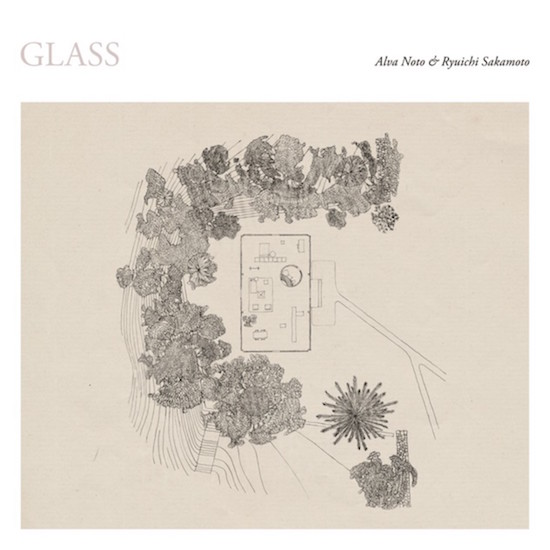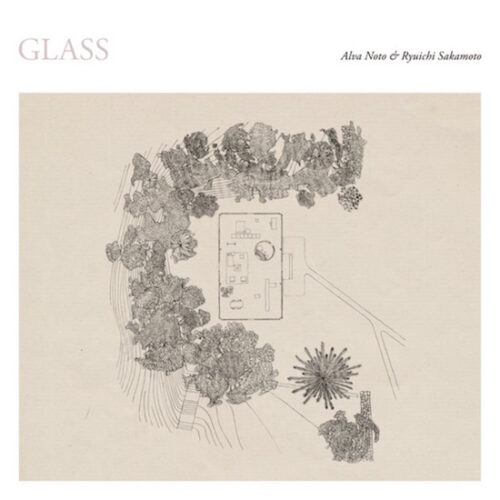From a soundtrack for The Revenant to their recent critically acclaimed works, both solo and in collaboration, both Alva Noto (Carsten Nicolai) and Ryuichi Sakamoto seem to be on a trajectory of increasing success.
The duo released five albums and an EP over 15 years of collaboration, before Sakamoto was diagnosed with oropharyngeal cancer in 2015. He returned to music after a year-long hiatus and in 2016 performed live alongside Noto in Philip Johnson’s Glass House, using the building not only as an instrument but as a symbolic extension of the icy notions the pair had hinted at on that Revenant soundtrack.
The recording of this performance, Glass, forms a crucial element in the understanding of Sakamoto’s current work, 42 years into his career. On 2017’s Async, we saw how Sakamoto’s illness had affected him. The record was a reflection on mortality and one of the best-received ambient works of the year.
Glass works not only as a stepping stone between Noto and Sakamoto’s future works, but also as a sister work to Async, prototyping many themes and ideas found on it. Drawing inspiration from the sound sculptures of Harry Bertoia, Noto and Sakamoto take an impressionistic delve into close listening. Dreamlike to its core, sounds are amplified to their breaking point, leaving them unrecognisable. Musing on themes of existentialism, Sakamoto utilises the Glass House to its fullest extent, scraping rubber mallets across its mic’d up glass walls and producing a dread-inducing wail through digital processing.
It is interesting seeing Sakamoto return to his experimental roots, after decades of producing some of the most important synth-pop in history. From his continual contributions to modern music, it seems unjust that Sakamoto is still as unrecognised as he is in the west’s mainstream.



